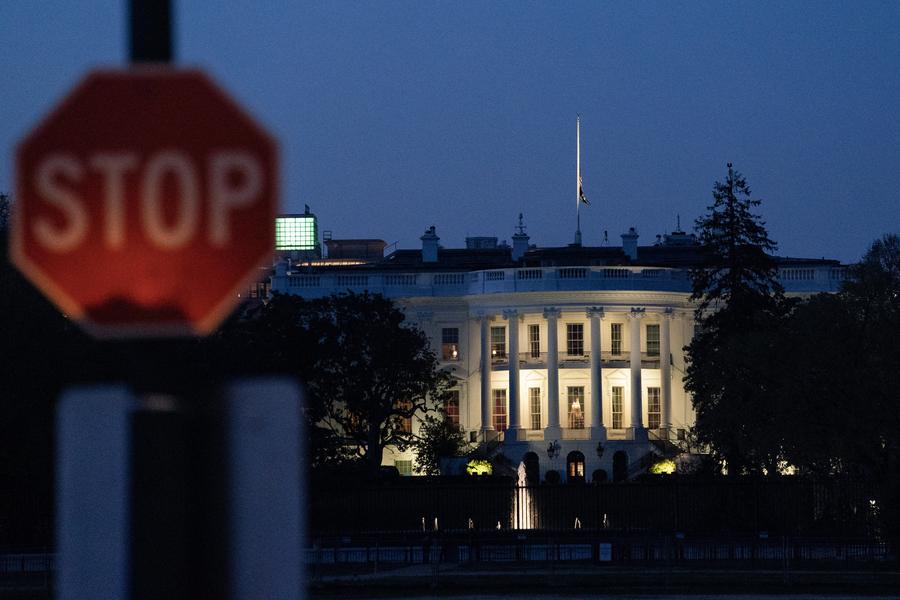




- BRNN
- BRI News
- BRNN News
- Database
Official Documents Polices and Regulations
Inter-government Documents International Cooperation BRI Countries
Business Guide Economic Data BRI Data
Trade
Investment Projects Latest projects
Cases - Content Pool

This photo taken on March 29, 2023 shows the White House in Washington DC. (Photo/Xinhua)
A growing number of U.S. scholars and politicians have voiced criticism of the Trump administration's aggressive tariff policy, warning of serious economic consequences.
Economists say tariff calculations flawed, warn of consumer harm
The U.S. tariff policy has drawn sharp rebukes from economists who argue that the methodology behind these tariffs is deeply flawed, potentially harming American consumers and businesses more than protecting them.
Dozens of economists, including Nobel laureates Vernon Smith and James Heckman, have signed an "anti-tariff declaration" stating that the "reciprocal" tariff rates being threatened and imposed by the United States on other countries are calculated using an erroneous and improvised formula with no basis in economic reality.
The declaration also reads: "The current administration's tariffs are motivated by a mistaken understanding of the economic conditions faced by ordinary Americans. We anticipate that American workers will incur the brunt of these misguided policies in the form of increased prices and the risk of a self-inflicted recession."
According to Kevin Corinth and Stan Veuger, economists at the American Enterprise Institute (AEI), a conservative think tank, the tariffs should be about 25 percent lower than stated because the Trump administration erred in its calculations by undervaluing the duties' impact on import prices. The formula has "no foundation in either economic theory or trade law," the AEI economists said.
"It's very wrongheaded economics; it's quite natural that you will have deficits with some countries and surpluses with others," economist Marcus Noland, executive vice president and director of studies with the Peterson Institute for International Economics (PIIE), said in an interview with CNN. "So, trying to implement a policy to generate balanced trade with all countries just flies in the face of any kind of comparative advantage or specialization."
Karen Dynan, a nonresident senior fellow at PIIE, estimates the probability of a U.S. recession over the next 12 months at 40 percent, warning that any additional U.S. economic weakness would weigh heavily on global growth, particularly for U.S. trading partners.
U.S. politicians raise concern over tariffs
"It's not fair, and it doesn't make economic sense," Senator Charles Grassley, an Iowa Republican, said in a statement. He added that the federal government has a responsibility to "help those Americans and mitigate the damage it caused" to those suffering economic hardship from the tariffs.
Anthony Scaramucci, who briefly served as White House communications director, criticized President Donald Trump's trade policy in comments to Business Insider, warning that aggressive tariffs could trigger a recession by increasing consumer costs and prompting retaliatory measures from other countries that would harm U.S. exports.
Whether the Trump administration will alter its course remains to be seen, but mounting criticism from both academic and political quarters suggests pressure is building for policy adjustments.

Tel:86-10-65363107, 86-10-65368220, 86-10-65363106